Education is the key to a brighter future, but for many Nigerian students, high tuition fees stand in the way of achieving their dreams. Every year, thousands of students struggle to afford university education, and some even give up completely because of the rising cost of schooling.
But here’s the good news: not all universities are expensive. Some state universities in Nigeria still offer quality education at affordable rates, making it possible for students from all backgrounds to pursue their dreams without going into debt.
If you are searching for affordable state universities in Nigeria where you can study without financial pressure, this list is for you. Here are 10 of the cheapest state universities in Nigeria in 2025, their school fees, and why they are great choices for students looking for quality education at an affordable cost.
🌟 Recommended for You
- Study Abroad Opportunities for JAMB 2025 Candidates — See Top Scholarships
- How JAMB 2025 Candidates Can School in the USA with Full Sponsorship
- Apply for Fully Funded Scholarships After Writing JAMB 2025
- Don't Miss Scholarship Opportunities for JAMB 2025 Students
- Best Scholarships for Students Preparing for JAMB 2025
READ ALSO:
- 10 Cheapest Private Universities in Nigeria and Their Tuition Fees 2025
- 10 Cheapest Federal Universities in Nigeria and Their School Fees 2025
Taraba State University, Jalingo (TSU)
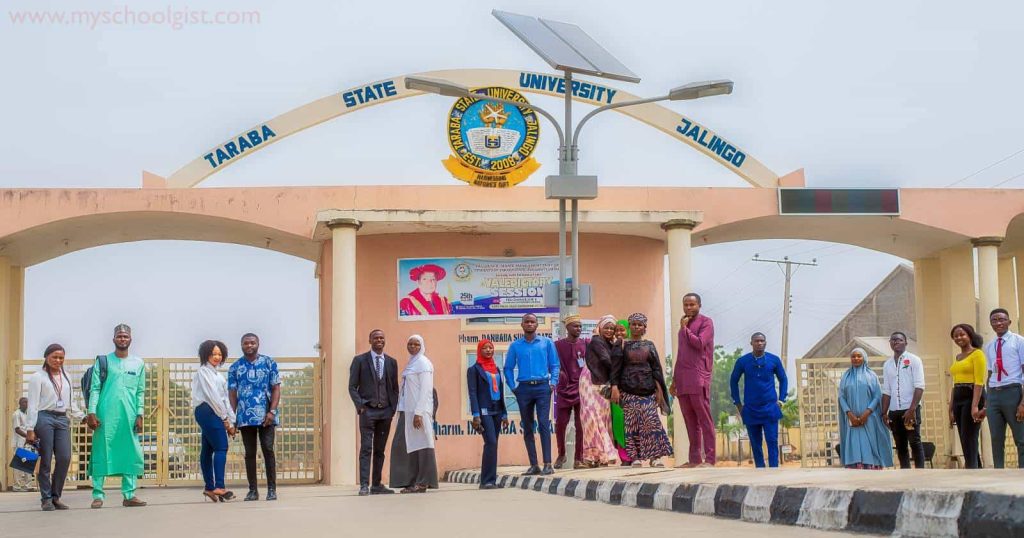
For many young Nigerians, education is a dream—a dream that often feels out of reach because of high school fees. Some students work hard, burning the midnight oil, determined to secure a brighter future. But when the time comes to take the next step—university—the reality of financial struggles sets in. This is where Taraba State University (TSU), Jalingo, stands as a beacon of hope, proving that getting a quality education does not have to cost a fortune.
TSU remains one of the cheapest state universities in Nigeria, with school fees ranging from ₦25,000 to ₦35,000 per session. At a time when tuition fees in many institutions are skyrocketing, forcing students to drop out or abandon their dreams, Taraba State University offers a lifeline. With strong backing from the Taraba State Government, the institution has made education accessible to students who otherwise might never have had a chance to sit in a university classroom.
🌟 You Might Also Like
- Top Scholarships JAMB 2025 Candidates Should Apply for This Year
- Fully Funded Scholarships Available for JAMB 2025 Students — Apply Now
- Discover Study Abroad Opportunities After Writing JAMB 2025
- How JAMB 2025 Students Can Study in the USA with Full Sponsorship
- Apply Now for Scholarships Open to JAMB 2025 Candidates
For many students, the thought of paying school fees is a constant worry. Some have parents who struggle to afford three meals a day, yet they are determined to send their children to school. Some students take up menial jobs—selling in markets, working as bus conductors, or doing laundry—just to save money for tuition. At TSU, these students find relief, knowing that they don’t have to pay hundreds of thousands of naira just to receive a university education.
Another major advantage of TSU is that, unlike some universities where non-indigenes are charged almost double the fees, Taraba State University maintains nearly the same fee structure for both indigenes and non-indigenes. This means that even if you are from a different state, you can still study at TSU without being financially burdened. Many students who couldn’t afford education in their home states find their way to Taraba, where they are welcomed with open arms.
The university offers a wide range of courses in Sciences, Arts, Education, Social and Management Sciences, and more. This means that no matter your passion—whether it’s engineering, law, teaching, or business—there’s a place for you at TSU.
Beyond affordability, TSU is committed to academic excellence. Over the years, the university has produced graduates who have gone on to become doctors, engineers, teachers, and successful entrepreneurs. It proves that affordable education does not mean low-quality education. With dedicated lecturers, modern learning facilities, and a strong emphasis on research and practical learning, TSU ensures that students receive not just a degree, but a meaningful education that prepares them for real-world challenges.
For those who have been discouraged by high school fees, Taraba State University offers hope. It is proof that no dream is too big, and no background is too poor for a determined student to succeed. It is a place where students can walk into the gates with a heart full of ambition and leave with a certificate that opens doors to endless possibilities.
Education is a right, not a privilege. And at TSU, this right is made affordable, accessible, and achievable for thousands of students every year.
Gombe State University, Gombe (GSU)
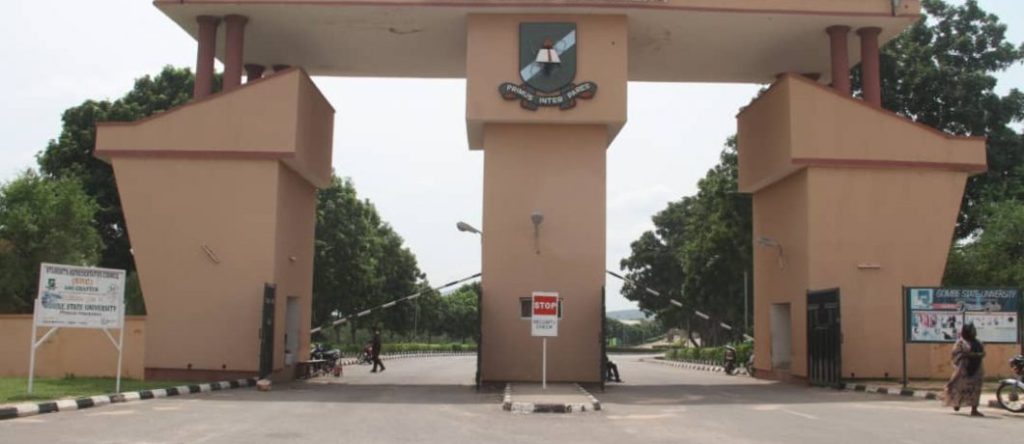
For many students, the dream of going to university feels like a battle between ambition and reality. You see your mates getting admission, preparing for their future, while you sit at home, staring at the walls, wondering if you’ll ever be able to afford school fees. Education should not be a luxury, yet for so many students in Nigeria, it feels like one.
This is why Gombe State University (GSU) stands out—it removes financial barriers and gives students a real chance to chase their dreams without fear of school fees crushing them.
GSU is one of the most affordable state universities in Nigeria, with school fees as low as ₦22,500 per session for indigenes and ₦59,000 – ₦80,000 for non-indigenes, depending on the course. In a country where some universities charge over ₦500,000 per session, this is a lifeline for students whose families struggle to make ends meet.
Imagine a student from a low-income home in Gombe State. Maybe his father is a farmer, his mother sells akara by the roadside, and every kobo in the house is carefully planned to put food on the table. Now imagine that same student getting an opportunity to study at Gombe State University for just ₦22,500 per year. That’s less than what some people pay for a smartphone! For that amount, he can sit in a classroom, learn from experienced lecturers, gain knowledge that can transform his life, and build a future that his parents never had.
GSU is not just about affordability—it is about excellence. It offers a wide range of programs, from Medicine, Social Sciences, and Law to Education, Agriculture, and Management Sciences. Many students who attend GSU don’t just graduate with degrees—they leave with knowledge, skills, and the confidence to compete in the real world.
One of the biggest reasons students fear university is the fear of dropping out due to financial constraints. Some start, but halfway through, their parents can’t afford to pay the next session’s fees, and suddenly, they are stuck. GSU provides a safe option—where school fees are stable and manageable, so students don’t have to live in constant fear of being sent home.
For non-indigenes, the fees are slightly higher but still affordable compared to many other state universities. Even for a non-indigene paying ₦80,000 per session, GSU remains cheaper than several other institutions that charge double or even triple that amount.
At Gombe State University, education is not reserved for the rich—it is made possible for anyone who is willing to work hard. It is a place where students can turn their hopes into reality, where the child of a poor farmer can become a lawyer, a doctor, a teacher, or an engineer.
No student should ever have to abandon their dreams because of money. GSU understands this, and that’s why it continues to offer some of the lowest school fees in Nigeria—because a brighter future should be possible for everyone, not just those who can afford it.
Borno State University, Maiduguri (BOSU)
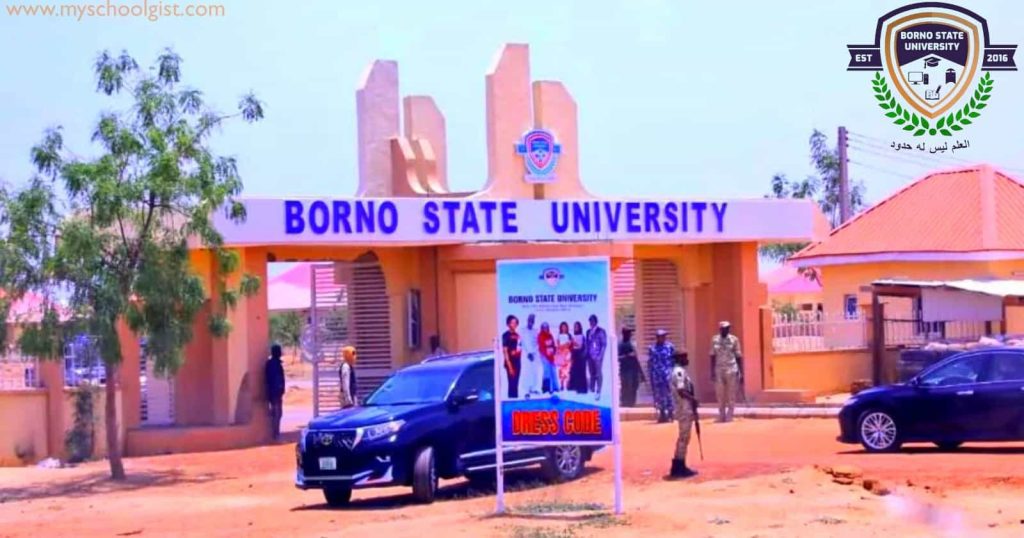
For many students across Nigeria, getting into university is just the first battle—the real struggle is finding the money to stay there. Tuition fees keep rising, and for families already struggling to afford daily meals, university education sometimes feels like an impossible dream.
But Borno State University (BOSU) is changing that story. At BOSU, education is not just for those with deep pockets—it is a right for every hardworking student who wants to build a better future.
Unlike many universities where tuition fees force students to drop out, Borno State University has a unique policy that allows indigenes to study without paying tuition. Yes, you read that correctly—Borno indigenes do not pay tuition fees. Instead, they only cover registration and service charges, which amount to about ₦39,800 per session.
For a student from a low-income home, this is life-changing. Imagine growing up in a state where opportunities are scarce, where education is often interrupted by financial hardship, and then discovering that you can get a university degree without worrying about how to pay for tuition. It’s not just affordable—it’s a second chance at life.
Even for non-indigenes, BOSU remains one of the cheapest universities in Nigeria, with total school fees around ₦59,800 per session. Compared to other state universities where non-indigenes are charged over ₦150,000, BOSU still stands out as one of the most affordable options.
But BOSU is not just about cheap school fees—it is about giving students the quality education they deserve. The university offers programs in Sciences, Social and Management Sciences, Education, and Agriculture, ensuring that students don’t just graduate with certificates, but with knowledge and skills that will help them succeed in life.
For many students in Borno State, education has been a struggle. Some have had their academic journeys disrupted due to crises, while others have watched their parents sacrifice everything just to send them to school. BOSU is giving these students a fresh start—a place where financial struggles don’t have to stand in the way of their future.
Imagine a young boy in Maiduguri, the son of a tailor who has spent his whole life watching his father work hard to make ends meet. He dreams of becoming an accountant, but every university he checks has tuition fees that his family simply cannot afford. Then, he hears about BOSU—a place where he can study without tuition fees, where he only needs to cover minimal charges, and where his dreams are finally within reach.
That is what Borno State University represents—a second chance, a beacon of hope, and proof that education should be accessible to all, not just the privileged few.
At BOSU, students don’t have to spend sleepless nights worrying about how to pay for their next session. Instead, they can focus on what truly matters—learning, growing, and working toward a better future.
For anyone struggling with school fees, BOSU is a reminder that affordable education still exists, and that dreams don’t have to be abandoned just because of money.
Plateau State University, Bokkos (PLASU)
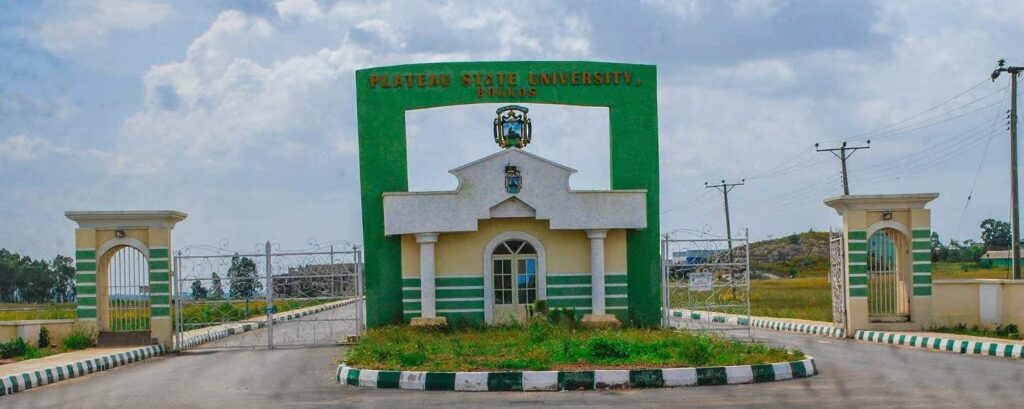
For so many young Nigerians, the biggest barrier to education is not their ability to learn, but the cost of school fees. They wake up every morning with the hunger to succeed, the desire to study, and the hope of changing their future—but the reality of financial hardship keeps pulling them back.
For students in Plateau State, Plateau State University (PLASU), Bokkos, is offering them a chance to break free from this cycle. At a time when many universities have raised their fees beyond what the average Nigerian can afford, PLASU has remained committed to keeping education accessible.
Thanks to a 50% tuition subsidy from the Plateau State Government, indigenes pay only ₦40,000 – ₦45,000 per session, while non-indigenes pay about ₦80,000. This subsidy is not just numbers on paper—it is the reason many students are able to remain in school and complete their degrees.
Imagine a student from a small village in Plateau State. His father is a retired civil servant, his mother sells food by the roadside, and his entire family barely survives on what little they make. In another university, school fees might be as high as ₦200,000 per session, and this boy would have no choice but to drop out. But at PLASU, he gets a real chance—he pays just ₦40,000, an amount that his family can struggle but still manage to afford.
This is what affordable education means—it is not just about money, it is about giving every hardworking student a fair shot at a better life.
PLASU offers programs in Sciences, Social Sciences, Management, and the Arts, ensuring that no matter what a student is passionate about, they have the opportunity to study it.
But PLASU is not just a cheap university—it is a university committed to excellence. With highly trained lecturers, well-equipped facilities, and a learning environment that encourages creativity and innovation, students graduate from PLASU not just with a degree, but with the knowledge and skills they need to succeed in the real world.
The state government’s commitment to reducing school fees is a major reason why PLASU remains one of the cheapest universities in Nigeria today. Without this subsidy, many students would have been forced to abandon their dreams. But because of this intervention, they can continue their education, finish their degrees, and create a future they once thought was impossible.
For many students across Nigeria, education is the only way out of poverty. But when school fees keep increasing, it feels like that escape route is being blocked. PLASU stands as proof that there are still universities that care about students—not just about making money.
For students who are desperate for an affordable university, PLASU is more than just a school—it is a lifeline. It is a place where students from low-income backgrounds can walk through the gates with nothing but their dreams and graduate with the knowledge and confidence to turn those dreams into reality.
Education should be about hard work, dedication, and ambition—not about how much money you have. At Plateau State University, Bokkos, students are given the chance to prove that success is not for the wealthy alone, but for anyone willing to put in the effort.
Kebbi State University of Science and Technology, Aliero (KSUSTA)
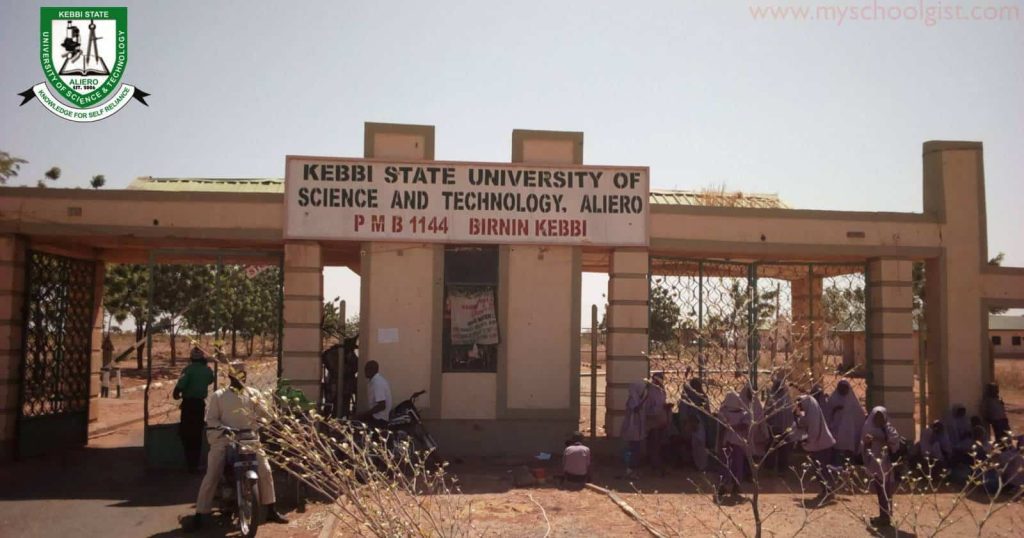
For many young Nigerians, getting into university is just the beginning of the struggle. The real battle starts when it’s time to pay school fees. Every session, thousands of students sit at home, watching their dreams slip away—not because they are not intelligent, but because they simply cannot afford to continue their education.
But Kebbi State University of Science and Technology, Aliero (KSUSTA), is proving that education doesn’t have to be expensive to be valuable. Here, school fees remain one of the lowest in Nigeria, ensuring that students from all backgrounds can pursue their academic goals without the fear of financial ruin.
At KSUSTA, indigenes of Kebbi, Sokoto, and Zamfara States pay just ₦34,000 per session, while non-indigenes pay ₦84,000. This difference in fees is a deliberate effort by the Kebbi State Government to ensure that education remains affordable for its citizens. Even for non-indigenes, the fees are still significantly lower than those of many universities in Nigeria, where non-indigenes often pay as high as ₦200,000 or more per session.
Imagine a young girl from a farming family in Kebbi State. Her father wakes up before dawn to work in the fields, her mother sells produce in the local market, and every naira in their household is carefully spent. In another university, school fees of ₦100,000 or more would crush her dreams, forcing her to abandon education and settle for a life she never wanted. But at KSUSTA, she has a fighting chance.
With just ₦34,000, she can study Engineering, Agriculture, Environmental Science, or Computer Science—all without placing an impossible financial burden on her family. This is what affordable education looks like: a real opportunity for hardworking students to build a future they once thought was out of reach.
But KSUSTA is not just about affordability—it is about quality. As one of Nigeria’s leading state universities in science and technology, KSUSTA is committed to producing graduates who can compete in today’s world. The university provides well-equipped laboratories, skilled lecturers, and a curriculum designed to ensure that students don’t just pass exams but actually develop skills that will help them in their careers.
For many students, finding an affordable university with good academic standards is almost impossible. Some schools are cheap but lack quality education. Others offer great learning facilities but come with a price tag that only the rich can afford. KSUSTA strikes the perfect balance—providing low-cost but high-quality education in critical fields of science and technology.
This university stands as a lifeline for many students who might have otherwise been forced to give up on higher education. No student should have to choose between eating and paying school fees. No student should be forced to drop out because their parents are struggling to make ends meet.
At KSUSTA, education remains a tool for empowerment, not a privilege for the wealthy. It is a place where students are encouraged to dream, work hard, and achieve success—not because of how much money they have, but because of their passion and determination.
For those who believe that hard work should determine success—not financial status—KSUSTA is the perfect place to turn that belief into reality. Here, a poor farmer’s child can become an engineer. A market woman’s daughter can become a scientist. A young boy with nothing but dreams can build a future that no one thought possible.
At Kebbi State University of Science and Technology, Aliero, education is not a privilege. It is a right. And that is why it remains one of the best choices for students looking for a quality university education without the burden of excessive fees.
Aliko Dangote University of Science and Technology, Wudil (ADUSTECH)
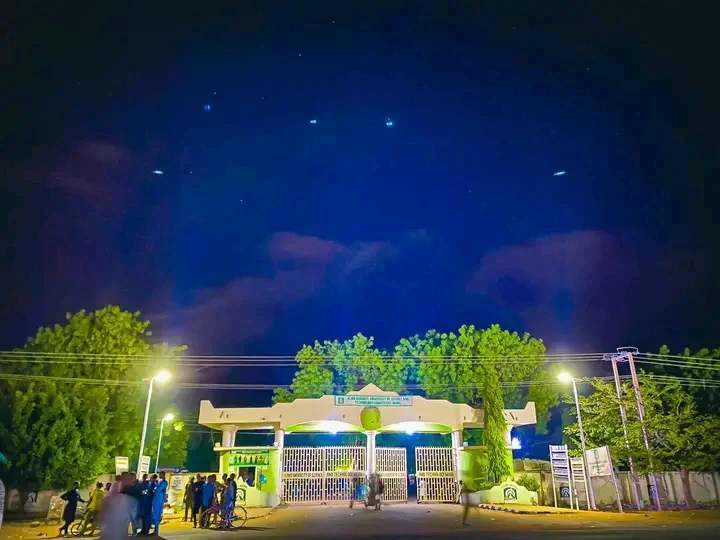
For many students in Nigeria, the difference between success and failure is not intelligence, but opportunity. So many bright minds are forced to abandon their dreams—not because they lack potential, but because they cannot afford the rising cost of higher education.
But in Kano State, Aliko Dangote University of Science and Technology, Wudil (ADUSTECH) is making sure that money is not the reason students drop out of school. Here, the doors of education remain open to those who are willing to work hard, regardless of their financial background.
Thanks to a special tuition subsidy by the Kano State Government, indigenes pay only ₦47,000 per session, while non-indigenes pay ₦115,000. This 50% reduction in fees for indigenes is not just a policy—it is the reason thousands of students still have a chance at a university education today.
Imagine a young boy in Kano. His father is a petty trader, his mother sells vegetables in the market, and every naira in the house is stretched thin. In most universities, school fees would be a nightmare—something his family simply cannot afford. But at ADUSTECH, he has a real shot at getting a degree, building a career, and lifting his family out of poverty.
This is what affordable education means—a chance for students who would have otherwise been left behind.
ADUSTECH specializes in science, technology, and engineering courses, making it an excellent choice for students who want to be part of Nigeria’s future innovations. From Civil and Mechanical Engineering to Computer Science, Agricultural Technology, and Environmental Science, the university offers programs that prepare students for real-world challenges.
But affordability is not ADUSTECH’s only strength. The university has one of the most advanced science and technology curriculums among state universities. Students are not just taught theory—they are given hands-on experience that prepares them to compete globally.
Many students in Nigeria are forced to attend poorly equipped universities simply because they are cheap. They graduate without the necessary skills to thrive in today’s competitive job market. But at ADUSTECH, low fees do not mean low quality. The university combines affordability with excellence, ensuring that students graduate with both knowledge and practical experience.
For students who are passionate about science, technology, and engineering but fear they cannot afford university education, ADUSTECH is the answer. Here, you don’t need to be from a wealthy background to succeed. You just need determination, focus, and the willingness to work hard.
No student should have to abandon their dreams because of money. No student should be forced to choose between feeding themselves and getting an education.
At Aliko Dangote University of Science and Technology, Wudil, success is not determined by your bank account—it is determined by your dedication and commitment to your future.
This university is more than just a school—it is a place where dreams are kept alive, where opportunities are given, and where students are empowered to break free from the chains of financial struggle.
If you are looking for a university that believes in your potential, regardless of your financial situation, then ADUSTECH is the place to be. Your future is waiting—grab it.
Yobe State University, Damaturu (YSU)
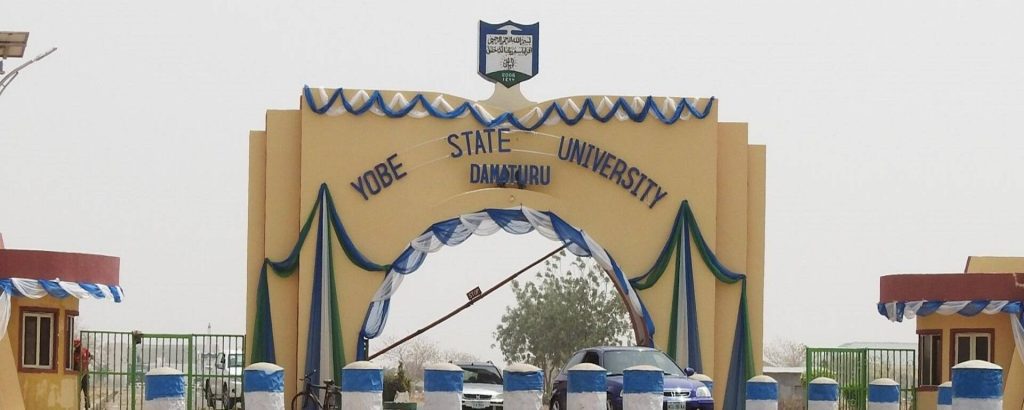
For many young Nigerians, getting into university is just the first hurdle. The real challenge begins when it’s time to pay school fees. Every year, thousands of students watch their dreams slip away simply because their families cannot afford the rising costs of higher education.
But at Yobe State University (YSU), Damaturu, students are given something that many universities fail to provide—hope. In a world where education often feels like a privilege only the wealthy can afford, YSU stands as proof that affordable education is still possible.
Here, school fees remain one of the lowest in the country, thanks to the Yobe State Government’s policy of free tuition for indigenes. While students in many other universities struggle to pay hundreds of thousands of naira, YSU indigenes pay only ₦45,000 – ₦52,000 per session for administrative and service charges. Non-indigenes pay between ₦75,000 and ₦95,000, which is still far cheaper than most universities across Nigeria.
For a student in Yobe, this is life-changing. Imagine growing up in a rural community, where your parents barely earn enough to feed the family. You dream of going to university, but the cost of education feels like an impossible barrier. Then, you discover YSU—a place where tuition is completely free for indigenes, and the only fees to worry about are basic administrative costs. Suddenly, your dreams are no longer out of reach.
YSU is not just a cheap alternative—it is a university dedicated to producing graduates who can stand shoulder to shoulder with students from more expensive institutions. With a strong academic structure and well-equipped faculties, the university offers a wide range of courses in Sciences, Arts, Social and Management Sciences, and even Medical and Health Sciences.
This means that at a fraction of the cost, students can study Law, Medicine, Accounting, Political Science, Computer Science, or Education, and graduate with the same qualifications as students from some of the country’s most expensive universities.
But affordability is only part of the story. YSU also prides itself on providing a supportive learning environment where students don’t have to struggle just to survive. Many universities push students to their financial limits with endless hidden fees, but at YSU, the focus is on learning, not just on making money from students.
For a student who comes from a low-income home, this means everything. It means not having to beg for financial help every semester, not having to drop out because of unpaid fees, and not having to watch your dreams disappear because of money.
Education should be a right, not a luxury. At Yobe State University, this belief is more than just words—it is a reality. Every year, thousands of students are given the chance to earn a degree without financial stress, thanks to the university’s commitment to affordable and accessible education.
No student should have to choose between feeding their family and getting an education. No student should be forced to drop out because of school fees. YSU exists to ensure that doesn’t happen.
For anyone looking for an affordable, high-quality university education, Yobe State University is more than just a school—it is an opportunity, a second chance, and a place where no student is left behind.
At YSU, your background does not determine your future. Your hard work does.
Nasarawa State University, Keffi (NSUK)
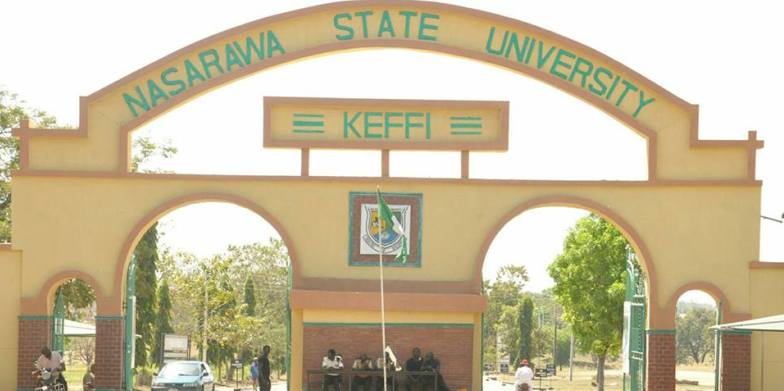
For so many students in Nigeria, education is not just about learning—it is about survival. It is about breaking free from the cycle of poverty, about finding a way to build a better future for themselves and their families. But for many, the rising cost of university education makes that future seem impossible.
This is why Nasarawa State University, Keffi (NSUK) stands as a lifeline for thousands of students who are determined to succeed but are held back by financial constraints.
At NSUK, education is made affordable and accessible. Indigenes pay between ₦54,100 and ₦57,100 per session, while non-indigenes pay around ₦89,100 – ₦94,100. Compared to many universities where students pay over ₦200,000 per session, NSUK provides an opportunity for students to pursue their dreams without financial ruin.
Imagine a student from a small town in Nasarawa State. His parents are farmers, working tirelessly every day to put food on the table. He is brilliant, hardworking, and determined to succeed. But when he looks at the tuition fees of other universities, he sees numbers his family can never afford.
Then, he finds NSUK—a university where he doesn’t need to be rich to get a good education. With just over ₦50,000 per session, he can earn a degree in Law, Medicine, Political Science, Business Administration, or any other field he chooses. Suddenly, his future doesn’t seem so impossible anymore.
But NSUK is not just about affordability—it is about quality education. The university offers a wide range of programs, from Arts and Social Sciences to Law, Medicine, and Management Sciences. Students don’t just get a degree—they get a solid education that prepares them for real-world success.
Another major advantage of NSUK is its strategic location. Keffi is just a short distance from Abuja, making it one of the most accessible state universities in Nigeria. This means that students have the added advantage of being close to internship opportunities, government agencies, and multinational organizations—giving them a head start in their careers.
For many students, the fear of school fees never really goes away. Some universities start with low fees but gradually increase them over time, forcing students to drop out when they can no longer keep up. But NSUK has remained committed to keeping fees low, ensuring that students can complete their education without unexpected financial burdens.
For non-indigenes, the fees are slightly higher but still affordable compared to many other state universities. Even at ₦94,000 per session, NSUK remains cheaper than many universities that charge over ₦150,000 or more.
At Nasarawa State University, Keffi, students are given the one thing they need most—a chance. A chance to prove that they are more than their financial background, more than their struggles, and more than the limitations society places on them.
For every student who has ever worried about affording university education, NSUK is proof that quality education is still possible without excessive costs.
Here, students don’t have to sell their dreams just to survive. They don’t have to drop out because of unpaid fees. They just have to show up, work hard, and take advantage of the opportunities that NSUK provides.
Because at Nasarawa State University, success is not determined by wealth—it is determined by determination, resilience, and the willingness to fight for a better future.
Lagos State University, Ojo (LASU)
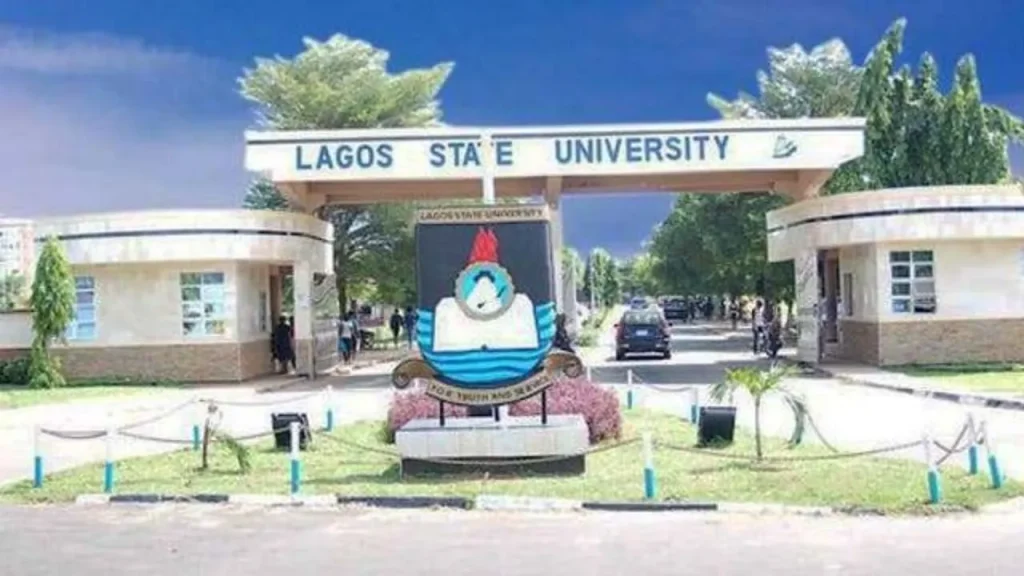
For many students, Lagos State University (LASU) is more than just a school—it is a lifeline. In a country where university education is increasingly becoming a privilege for the wealthy, LASU stands as a reminder that quality education should be accessible to all, not just those who can afford it.
At a time when some universities are demanding hundreds of thousands of naira per session, LASU remains one of the cheapest state universities in Nigeria. New students pay just ₦58,048 per session, while returning students continue to enjoy the incredibly low fee of ₦25,000 per session.
For many young people in Lagos and beyond, this makes the difference between getting an education and staying home because they can’t afford it.
Imagine a young girl from a low-income family in Lagos. Her father is a struggling mechanic, her mother sells bread by the roadside, and every day is a fight to put food on the table. She is brilliant, she is ambitious, she dreams of becoming a lawyer—but the thought of expensive university fees makes her question whether she will ever get the chance.
Then she finds LASU. A university in the heart of Nigeria’s busiest city, offering quality education at a price her family can manage. For just ₦58,048, she can enroll, and in subsequent years, she will pay only ₦25,000 per session. Suddenly, her dreams feel possible again.
LASU is not just about affordability—it is one of the best universities in Nigeria, consistently ranking among the top institutions in the country. It offers over 100 programs across various faculties, including Law, Medicine, Engineering, Management Sciences, Social Sciences, Arts, and Education.
The university has produced some of Nigeria’s finest professionals, entrepreneurs, and leaders. It is a place where students receive not just degrees, but real-world skills that prepare them for the future.
Unlike many universities that charge extra fees for non-indigenes, LASU has a flat rate for all students, making it one of the few universities in Nigeria where every student, regardless of their state of origin, pays the same affordable fees.
Beyond affordability and academic excellence, LASU offers something many other universities struggle with—stability. While some institutions are constantly plagued with strikes, fee hikes, and administrative issues, LASU has managed to maintain a more stable academic calendar, ensuring that students complete their studies on time.
In a city as expensive as Lagos, where everything from transportation to food costs a fortune, finding an affordable university that still delivers top-quality education is rare. But LASU is proof that it is possible.
For thousands of students every year, LASU represents hope. It is a place where a market woman’s son can become an engineer, a bus driver’s daughter can become a doctor, and a struggling teenager can rise above poverty and build a future they never thought possible.
No student should have to choose between feeding their family and getting an education. No student should have to drop out because they can’t afford tuition.
At Lagos State University, education is not a privilege reserved for the rich—it is an opportunity given to everyone who is willing to work hard for their future.
And for thousands of students, that opportunity is all they need to change their lives forever.
Akwa Ibom State University, Ikot Akpaden (AKSU)
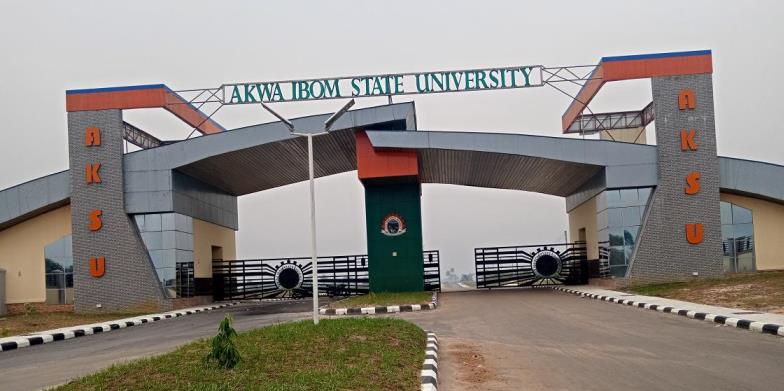
For many young Nigerians, education is their only escape from poverty. They work hard in secondary school, dreaming of the day they will step into a university and begin the journey toward a better life. But when that moment finally comes, school fees become an impossible obstacle. Parents who barely make enough to feed their families are suddenly expected to pay hundreds of thousands of naira per year. For some, this is where the dream ends.
But Akwa Ibom State University (AKSU) is changing that story. Here, students are given a real chance to succeed, no matter their financial background.
With school fees set at ₦93,000 for indigenes and ₦123,000 for non-indigenes per session, AKSU remains one of the most affordable universities in southern Nigeria. While many universities in the region have raised their tuition to ₦200,000 or more, AKSU has remained committed to keeping education within reach for students from all walks of life.
Imagine a young boy from a fishing community in Akwa Ibom. His father wakes up at dawn to cast his nets, his mother sells smoked fish at the market, and their earnings barely cover the cost of daily survival. He dreams of becoming an engineer, but when he hears about the tuition fees at other universities, he begins to lose hope.
Then, he discovers AKSU—a university where he can study Engineering, Computer Science, Business Administration, or Political Science for a price his family can manage. With ₦93,000 per session, he can enroll, study, and work toward a future that once seemed out of reach.
AKSU is not just about low fees—it is about academic excellence. The university offers strong programs in Engineering, Natural and Applied Sciences, Management, Agriculture, and Social Sciences, ensuring that students graduate with the knowledge and skills needed to compete in today’s job market.
For many students, the fear of dropping out due to school fees is a constant nightmare. They enter university full of hope, but halfway through, financial struggles force them to abandon their studies. At AKSU, students don’t have to live with that fear. The university’s fees are structured to be affordable enough for families to manage without extreme financial hardship.
Even for non-indigenes, AKSU remains one of the most cost-friendly universities in Nigeria. While other state universities charge non-indigenes almost double the fees of indigenes, AKSU’s difference is only ₦30,000, ensuring that students from outside Akwa Ibom can still get an affordable education.
Beyond affordability, AKSU offers a strong academic environment, with qualified lecturers, modern learning facilities, and a commitment to producing graduates who are ready to make an impact in society.
No student should have to abandon their dreams because of money. No student should have to choose between eating and getting an education. At Akwa Ibom State University, education is not just for the rich—it is for every student who is willing to work hard and create a better future.
For thousands of young Nigerians, AKSU is more than just a university—it is a promise that no matter where you come from, your dreams are still possible.
Why Are Some Universities Cheaper Than Others?
Some people may wonder why certain universities charge so much, while others remain relatively affordable. The truth is that the cost of education depends on multiple factors, including:
- State Government Subsidies – Some state governments heavily support their universities by covering part of the tuition fees, allowing students to pay less. This is why Borno State University allows indigenes to study tuition-free and Yobe State University has no tuition for indigenes, only administrative charges.
- Location and Cost of Living – Universities in cities with a lower cost of living tend to have cheaper school fees. Institutions in high-cost areas like Lagos or Abuja often need to charge more to cover expenses.
- Facilities and Programs Offered – Some universities invest heavily in expensive programs like Medicine, Engineering, and Technology, which require costly laboratories, equipment, and research funding. This may make them charge higher fees compared to schools focused on Social Sciences or Education.
- Government Policies – In some states, education is a top priority, leading to lower school fees. Governors who are passionate about youth development often introduce scholarships or reduce tuition fees to make education accessible to all.
Why Affordable Universities Matter
Education should not be a privilege reserved for the wealthy. It should be an opportunity available to every hardworking student, regardless of their financial background.
For many young Nigerians, these affordable universities are their only chance to escape poverty. Without them, thousands of students would be forced to abandon their dreams simply because they were born into low-income families.
These schools prove that with determination and access to affordable education, any student can succeed. They give hope to:
- The farmer’s child who dreams of becoming a doctor.
- The market woman’s daughter who wants to become a lawyer.
- The young boy from a rural village who wants to study engineering but has no money.
Making the Right Choice
If you are a student looking for an affordable university in Nigeria, take your time to research your options. Consider:
- The total cost of school fees (including tuition, acceptance fees, and administrative charges).
- Whether the university offers programs that align with your career goals.
- The availability of scholarships or financial aid programs in the state.
Final Thoughts
For many young Nigerians, the fear of high school fees can feel like a roadblock to their dreams. But the good news is that affordable education still exists, and these 10 state universities prove that quality learning doesn’t have to come at an impossible price.
If you’ve ever worried about how to afford a university education, remember that there are options out there for you. These universities are giving thousands of students a chance to achieve their goals without financial struggle.
Education should not be a privilege for the few – it should be a right for all. If you’ve been looking for a way to study without breaking the bank, now you know where to start. Choose wisely, prepare well, and let nothing stop you from reaching your dreams!


Honestly I believe the price mentioned here are not the same with the schools own
How much is onabisi onabanjo university school fees
Sure they are not correct
You didn’t include imo state University
Your research isn’t complete without IMSU
As an indigene I pay ₦29,500 per session and I’m currently studying medicine and surgery here .
Very affordable.
You didn’t include imo state University
Your research isn’t complete without IMSU
As an indigene I pay ₦29,500 per session and I’m currently studying medicine and surgery here .
Very affordable. thanks
Are you serious, because I’m also and indigen of IMO state
Lagos state University charges #90000 for indigenes and #180,000 for non indigenes. So that 50k plus and 25k price is wrong, lasu hasn’t charged anything less than 80k for over 3 years now
What of benue state go and do your reserche well naggi
Am still in confusion about all the price listed above